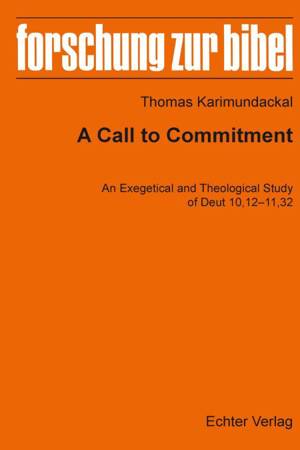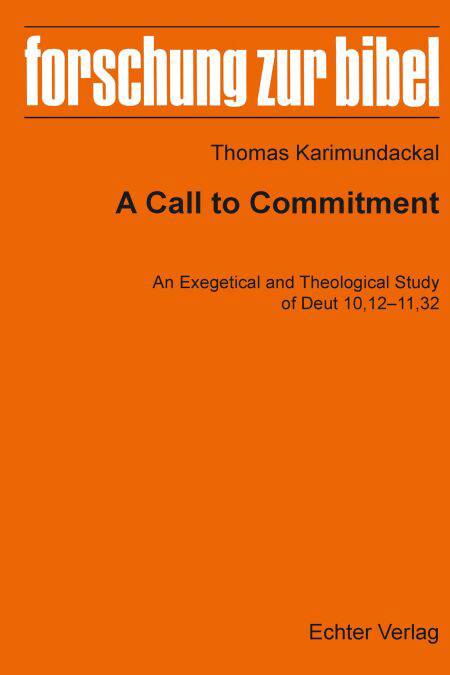
Bedankt voor het vertrouwen het afgelopen jaar! Om jou te bedanken bieden we GRATIS verzending (in België) aan op alles gedurende de hele maand januari.
- Afhalen na 1 uur in een winkel met voorraad
- In januari gratis thuislevering in België
- Ruim aanbod met 7 miljoen producten
Bedankt voor het vertrouwen het afgelopen jaar! Om jou te bedanken bieden we GRATIS verzending (in België) aan op alles gedurende de hele maand januari.
- Afhalen na 1 uur in een winkel met voorraad
- In januari gratis thuislevering in België
- Ruim aanbod met 7 miljoen producten
Zoeken
A Call to Commitment E-BOOK
An Exegetical and Theological Study of Deut 10,12-11,32
Thomas Karimundackal
€ 29,99
+ 29 punten
Omschrijving
Deuteronomy 10:12-11:32 is a very important text for the book of Deuteronomy. However, it has not received an adequate exegetical treatment so far. The present study intends to meet this need. Following a synchronic approach Thomas Karimundackal examines the text exegetically and theologically in its context. He analyzes the text extensively by referring to its intense relationships within Deuteronomy and with other biblical books. He shows how Deuteronomy 10:12-11:32 serves as a hermeneutical key to understand and interpret the theology of Deuteronomy. As a transitional passage, it connects the former framework and the Law Code in Deuteronomy, and thus forms a bridge. In addition, it is repeatedly connected to the latter framework of Deuteronomy, and thus proves to be a hermeneutical key to the book. From a theological point of view, the unique statements about God in Deut 10 stand out. The author also reflects on the role of the community and the contemporary relevance of the text.
Specificaties
Betrokkenen
- Auteur(s):
- Uitgeverij:
Inhoud
- Aantal bladzijden:
- 372
- Taal:
- Engels
- Reeks:
Eigenschappen
- Productcode (EAN):
- 9783429049409
- Verschijningsdatum:
- 30/09/2017
- Uitvoering:
- E-book
- Beveiligd met:
- Digital watermarking
- Formaat:

Alleen bij Standaard Boekhandel
+ 29 punten op je klantenkaart van Standaard Boekhandel
Beoordelingen
We publiceren alleen reviews die voldoen aan de voorwaarden voor reviews. Bekijk onze voorwaarden voor reviews.









